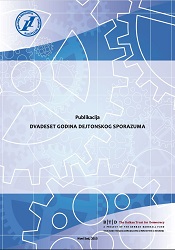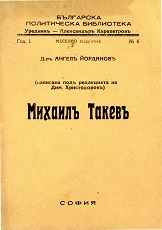
Михаил Такев
Published between 1930 and 1934 as No 6 of the series "Политическа библиотека". It presents a biography of Mihail Takev (1864-1920), a Bulgarian major and politician, one of the leaders of the Democratic Party in Bulgaria.
More...We kindly inform you that, as long as the subject affiliation of our 300.000+ articles is in progress, you might get unsufficient or no results on your third level or second level search. In this case, please broaden your search criteria.

Published between 1930 and 1934 as No 6 of the series "Политическа библиотека". It presents a biography of Mihail Takev (1864-1920), a Bulgarian major and politician, one of the leaders of the Democratic Party in Bulgaria.
More...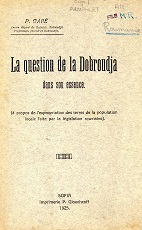
The author, P. Gabé, has been deputy of the Baltchik region (Dobrouja) and land-owner in the region. The booklet has been published in Sofia in 1925 by »Imprimerie P. Glouchkoff«
More...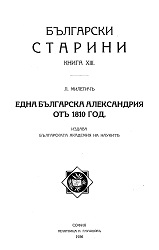
Published in 1936 by the Bulgarian Academy of Sciences (Department for History and Philology) as vol 13 of the series "Bulgarian Old Age" (БЪЛГАРСКИ СТАРИНИ, КНИГА XIII)
More...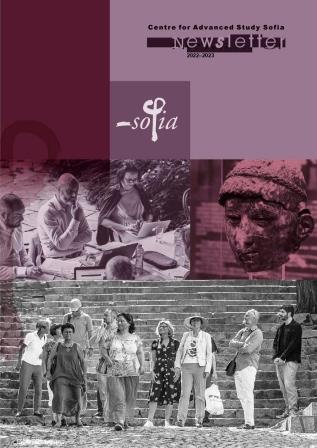
Articles, pictures and interviews can be reprinted only with the consent of the publisher.
More...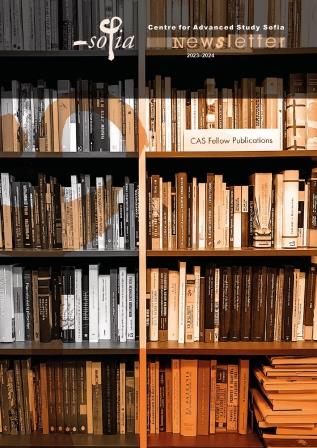
Articles, pictures and interviews can be reprinted only with the consent of the publisher.
More...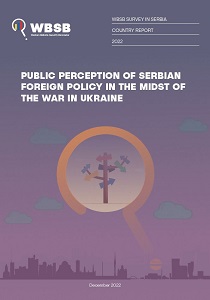
The war in Ukraine did not significantly affect the perception of the Serbian public regarding the major issues of Serbian foreign and security policy. In this context, this relates to how Serbian citizens think about the influence of great powers in their country and how the public perceives its relations with Russia and Western security institutions, the EU and NATO. The public opinion surveys also showed that the issue of Kosovo is still being perceived as a major foreign policy priority. There is a powerful cynicism in how the Serbian public views great power influences, as most respondents believe that external great powers bribe Serbian politicians and moguls to further their interests in the country. Russia and China are perceived as close foreign policy partners of Serbia, putting them in clear advantage over those who favour the EU on that front. The respondents also believed that Russia and China are sincere friends of Serbia and not players guided by their self-interest. As opposed to the study conducted by the Belgrade Centre for Security Policy (BCSP) in 2020, which noted that Serbs perceived Chinese influence in the country as more positive than Russian influence, the latest survey shows that those who believe Russian influence in Serbia is positive have a slight edge over those who believe the same about Chinese influence. This is most likely the result of the fact that China has not been in the spotlight in recent months.
More...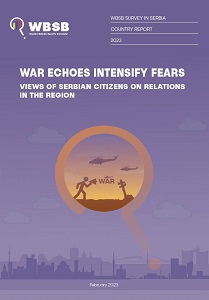
The Belgrade Centre for Security Policy conducted the annual public opinion survey on relations in the region, with a special focus on the Western Balkan countries and current events and trends. This report analyses Serbian citizens’ views on three main topics – the possibility of conflicts in the Balkans, Serbia’s bilateral relations with its neighbours, as well as key benefits and opportunities of regional cooperation and initiatives. Due to the current war in Ukraine and the war-mongering rhetoric in the Balkans, the fear of outbreak of conflict in the Balkans has risen. Compared to results from 2020, when more than half of citizens were not afraid of possible conflicts at all, the 2022 survey shows that almost two thirds of respondents are to a certain extent afraid of the outbreak of conflicts in the region in the next five years. Concerning potential causes of the conflict in the region, two-thirds of Serbian citizens believe that it is very or somewhat likely that a conflict might break out over the status of Kosovo. On the other hand, the results of the survey indicate a significant decrease in support of the reintroduction of mandatory military service, in comparison to results from 2020. When it comes to bilateral relations between Serbia and its neighbouring countries, the data shows a decline in support for potential separation of Republic of Srpska from Bosnia and Herzegovina and unification with Serbia. Citizens believe that relations between Serbia and Montenegro have not improved significantly, despite the signing of the Fundamental Agreement with the Serbian Orthodox Church. On the contrary, the negative perception of Serbian public towards Albania has slightly improved over the last two years, mainly due to the closer cooperation between the leaders of the two countries through the Open Balkan initiative. However, regional relations are still seen as strained, in part due to the promotion of the concept of Serbian world which creation is supported by slightly more than 40% of citizens. In 2022, the focus of the public in terms of regional cooperation was directed more directly to the Open Balkan initiative as a platform for collaboration between Albania, North Macedonia and Serbia. Although the data show an increase in the number of Serbian citizens who are familiar with the idea, there are still no concrete and publicly visible results of the initiative
More...